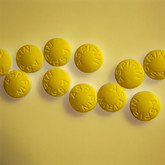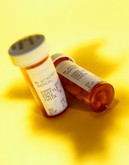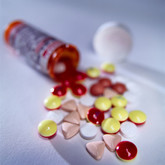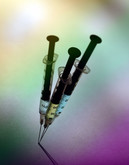Policies & Legislation
Battle over ‘pay-for-delay’ deals continues
The US Federal Trade Commission (FTC) Chairman, Mr Jon Leibowitz, has been arguing for some months now that passing legislation to restrict pay-for-delay deals between brand name and generic drugmakers will save US consumers billions of dollars. However, a new report throws doubt on the figures used to estimate these savings.
US healthcare reform
The tide is finally changing in the US with reform of the healthcare system finally set to provide universal health care to most of the US population. This is great news for the American citizen, but what are the implications for generics and biosimilars in this changing environment?
Indian government encourages biosimilars
India has, by far, demonstrated the greatest acceptance of biosimilars. In recent years over 50 biopharmaceutical products have been approved for marketing in India, with more than half of them being biosimilars.
US bill to curb generic ‘pay-for-delay’ deals
US drugmakers reacted with anger on 2 July 2010, as the House of Representatives voted in favour of measures to severely curb ‘pay-for-delay’ deals between brand name and generic firms, which have been included, bizarrely, in the War Funding Bill.
Spanish government introduces harsh generic price cuts
There has been a sustained slowdown in the Spanish economy since 2008. This has been aggravated by the major international financial crisis, resulting in a decrease in the Spanish Gross Domestic Product (GDP) of 3.6% in 2009. The government has therefore introduced measures to decrease the budget deficit, which include reduction of expenditure by the National Health System.
Spanish government urged to increase generics volume
In response to recent stringent price-cutting measures introduced in Spain, the Director General of the European Generic Medicines Association (EGA), Mr Greg Perry, has written to the Spanish Minister for Health and Social Policy. He is concerned about the effect these “overly-harsh price cuts” may have on the economic sustainability of AESEG´s (the Spanish Generic Medicines Association) member companies.
European Commission welcomes reduction in ‘potentially problematic’ patent settlements
A European Commission (EC) report on the monitoring of patent settlements has found that the number of patent settlements in the pharmaceutical sector that are ‘potentially problematic’ under the EU’s antitrust rules fell to 10% of total patent settlements in the sector in the period July 2008 to December 2009 compared with 22% in the period covered in last year's inquiry (January 2000–June 2008).
FDA ANDAs containing paragraph IV patent certifications
In the US, under the Drug Price Competition and Patent Term Restoration Act, or the Hatch-Waxman Act, a company can seek approval from the FDA to market a generic drug before the expiration of a patent relating to the brand name drug upon which the generic is based. The first company to submit an Abbreviated New Drug Application (ANDA) with the FDA has the exclusive right to market the generic drug for 180 days.
Russian drug spending set to reach US$4 billion by 2020
Russia is planning to pump RUB 120 billion (US$4 billion) into its fledgling pharmaceutical sector this decade as part of a broader push to diversify the economy away from its traditional oil and gas industry.
Danish healthcare spending cuts
In a bid to cut public spending, the Danish government is the latest to announce an austerity package aimed at creating savings of at least DKK 24 billion. The austerity package, as well as slashing unemployment benefits and cutting governmental salaries, also focuses on cost-containment within the healthcare sector.













